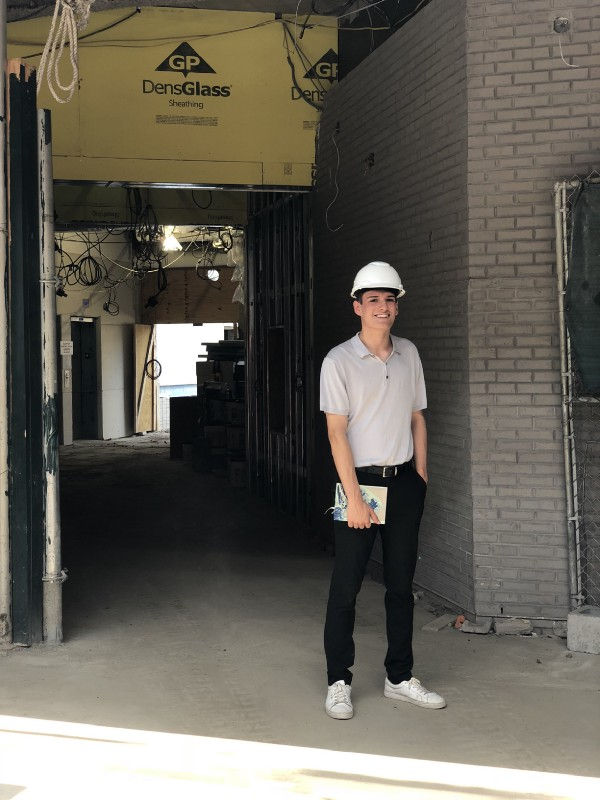An Education on Trust
- Emilie Davis
.png/v1/fill/w_320,h_320/file.jpg)
- Oct 17, 2016
- 4 min read
The West End of Louisville has a median household income of $21,733. There are five supermarkets, one coffee shop, and twenty-four liquor stores (Crutcher, 2013). In June 2016, the living wage calculation for Jefferson County, Kentucky for a family of five with one working adult was $25.76/hour. 59% of children live in poverty (Cabbage Patch Settlement House 2014 Annual Report).
The statistics alone are startling and unsettling. However, interning at the Cabbage Patch Settlement House in Louisville, KY taught me that poverty is more than numbers. Through my work as an intern in their educational opportunities department, I observed that those who live in poverty lack more than material possessions. Often, they lack trust. They are regularly told that they are not worthy of trust. A bank does not trust them with a loan. A property owner does not trust them with a lease. And a business owner does not trust them with a full-time job. As a result, it becomes habit to distrust others. The Cabbage Patch doesn’t subscribe to this. In fact, the best education the Cabbage Patch gives its participants, is an education on trust. The staff recognizes that potential cannot be realized without it.

“I observed that those who live in poverty lack more than material possessions. Often, they lack trust. They are regularly told that they are not worthy of trust. A bank does not trust them with a loan. A property owner does not trust them with a lease. And a business owner does not trust them with a full-time job. As a result, it becomes habit to distrust others,” writes Colon, who interned at Cabbage Patch Settlement House in 2016.
Starting with the children’s first day, the staff trusts that they will make positive use of their time at the Cabbage Patch. When children come to the Cabbage Patch, they decide how to spend their time. From 3 p.m. to 9 p.m. daily, they can choose to shoot hoops in the gym, play games in the game room, or participate in educational activities. The children often come and go between the rooms as they please. However, the staff encourages them to finish whatever activity they start. As the education manager, said to me, “If the children are going to learn how to spend their leisure time outside the Cabbage Patch, they must first learn how to spend it while inside the Cabbage Patch.” By allowing the children to decide how they spend their time, the children learn to be self-sufficient.
Trust also becomes an essential part of the Cabbage Patch’s discipline structure. The Cabbage Patch firmly believes that suspensions should not be used as sheer punishment, but rather as an opportunity to begin active mentoring and counseling. The Cabbage Patch staff thinks that all youth and their parents have worth and should always be treated with respect. They recognize that it takes years for any of us to develop unacceptable habits and attitudes, and therefore it may take several years of interventions to help. As a result, the children are required to meet with the behavior specialist before they begin their suspension and again when they return. During these meetings, the specialist talks with the child about the incident. While the poor behavior is acknowledged, the discussion focuses on how the staff and the child can work together to create a positive environment for all participants. The Cabbage Patch knows that kids are fallible and bound to make mistakes. But no matter how many times a child strays from the path, the staff doesn’t stop trusting him or her. They believe in the children, they support them, and they welcome them back.
The summer I spent at the Cabbage Patch was incredibly meaningful. Looking back, I can say with all earnestness that I have never felt so connected to an organization. I feel so passionate about the Cabbage Patch because the Cabbage Patch trusted me as an intern. The staff made me feel valuable. They listened to my ideas, gave me leadership roles, and supported me in moments when I felt overwhelmed. They invested in me. They listened to me talk about the anxiety I felt as a rising senior, and helped me think of topic ideas for my internship paper. The more they trusted me, the more I trusted myself. I asked for more responsibilities. I planned activities and assisted with field trips. I felt capable. Going to the Cabbage Patch was something I looked forward to each day. I wanted to be there.
Kimmi was one of the first children I met. With bright eyes and a friendly spirit, she was eager to introduce herself to me. It became routine for me to help her with her worksheets. Kimmi was eight-years-old and dyslexic, which made the worksheets a challenge. One day, we were working on a difficult word-search. When worksheet time ended, she discovered she had not finished hers. She ran out of the room. I followed her and found her in the hallway crying. “What’s wrong?” I asked her. “I can’t do it. I’m just too stupid. I’ll never get it.” “Kimmi,” I said. “Don’t say that! You worked so hard in there. I watched you find so many of those words all on your own. You are not stupid and your work in there is proof that you do get it. I am so impressed by you.” She wiped the tears from her eyes. “Want to go inside and finish it up?” I said. She nodded and followed me back into the room. A week later, we were sitting together working on a crossword puzzle. “What’s a role-model?” she asked, pointing at one of the words on the page. “Well, it’s someone you look up to.” I said. “Someone you want to be like when you grow up.” “Oh,” she said. “Someone like you.”



